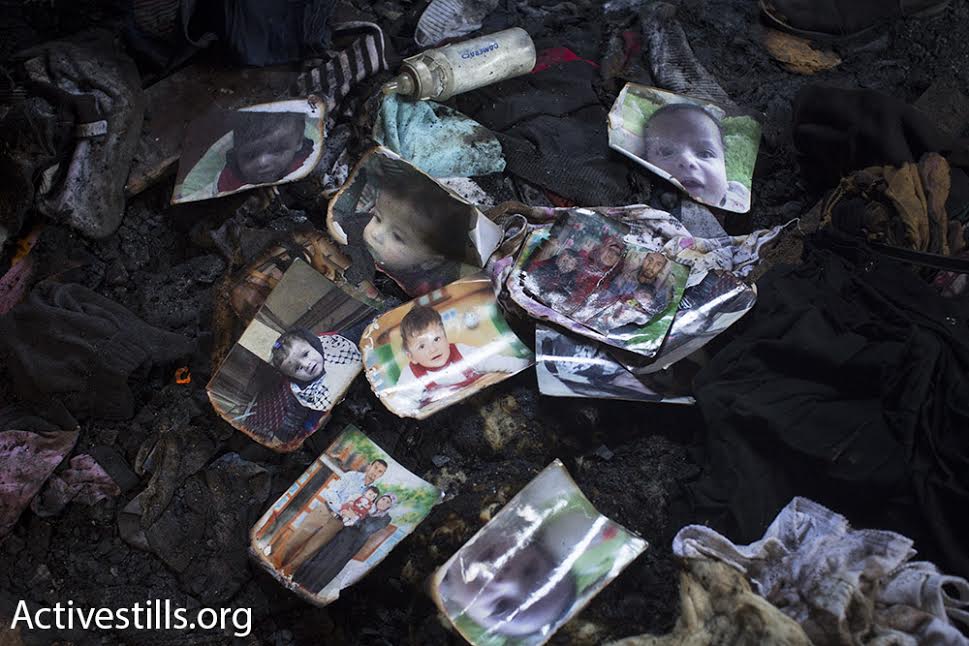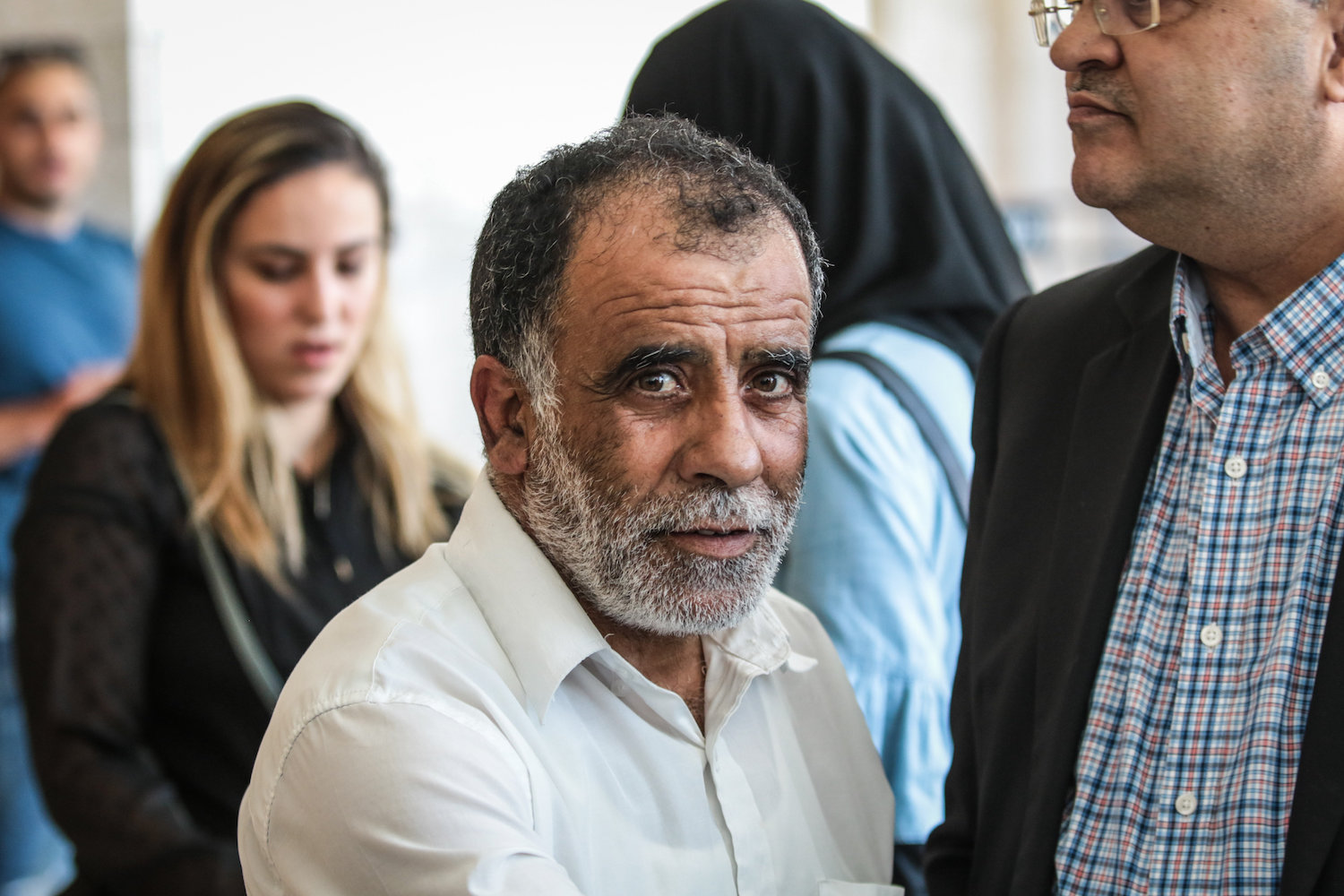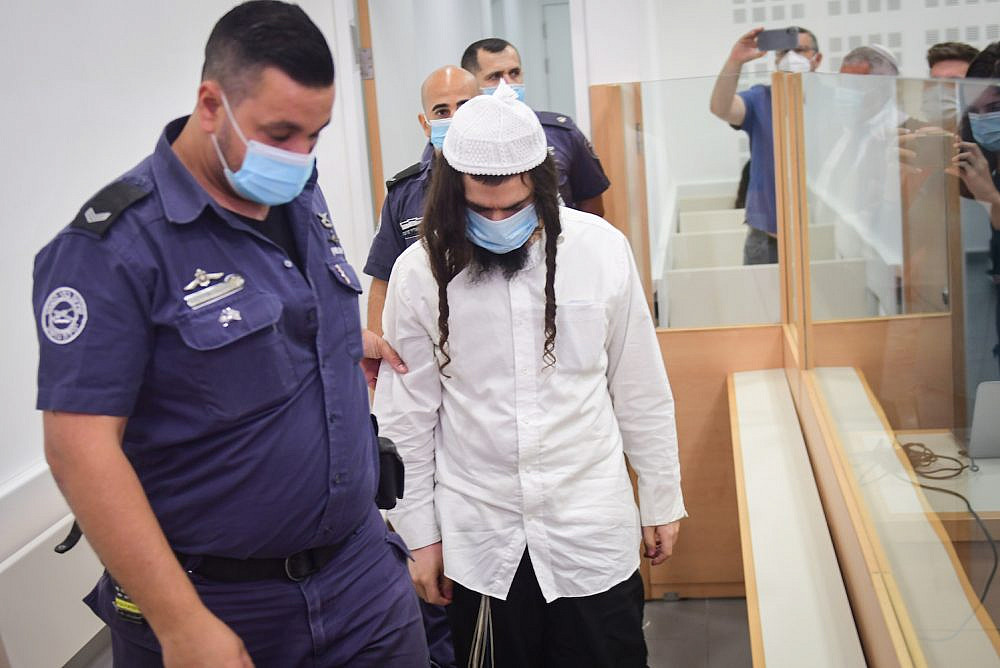This week’s conviction of Israeli far-right extremist Amiram Ben-Uliel over the 2015 arson attack that killed three Palestinians in the West Bank village of Duma may have offered some comfort to the family members of the deceased. What is certain is that the conviction will be used by Israel to demonstrate that its law enforcement system does, in fact, take crimes against Palestinians seriously.
To borrow from legal terminology: this is misrepresentation.
The investigation of the horrific attack that killed three members of the Dawabshe family in their sleep is the exception that proves the rule. That rule is that Israeli law enforcement authorities do not ascribe great importance to the investigation of crimes against Palestinians. This is true both in cases of severe violence and in day-to-day settler violence that has become the norm for Palestinians in the occupied West Bank.
Still, neither the army, the Shin Bet, nor the police were able to ignore the severity of this particular attack. Each branch of the security establishment knew full well that it had to solve this crime. After all, this was not simply another incident in which a “gang of leftists” published video footage of Palestinian shepherds being attacked by settlers. This time, a family was murdered. It even managed to penetrate the indifference of the Israeli public. After the arson, a photograph of baby Ali, who was burned alive with his parents Saad and Riham that night, was seen across the world.

The State Attorney’s Office may use the conviction as an excuse to boast about resolving the murder, as well as the powerful statement by the Lod District Court, which handed down the verdict, arguing that “terrorism is terrorism and the identity of those carrying it out is irrelevant.” Unfortunately, this unequivocal declaration is not grounded in facts.
For 15 years, Yesh Din has closely monitored the ways in which law enforcement agencies treat offenses committed by Israeli citizens against Palestinians in the West Bank. The approximately 2,000 investigation files amassed in the organization’s database tell a completely different story.
Approximately 91 percent of these files were closed after the investigations were concluded without an indictment. Of these, 82 percent were closed due to investigative failures, most of the time because the police failed to locate suspects or collect sufficient evidence for an indictment.
A review of the closed files also reveals that the police often failed to undertake the most fundamental and necessary actions for an investigation. Even in the Dawabshe case — in which the authorities dedicated time, resources, and their finest investigators — Yesh Din still found a major investigative failure.

Before there were any major leads to the perpetrators, Yesh Din obtained a document from the Binyamin civilian security call center. According to the document, at 4:03 a.m. on July 31, moments after the Dawabshe family home was torched, the call center received a report of a group of settlers walking from the Palestinian village Duma, where the Dawabshe family resides, toward the Israeli outpost of Adei Ad.
Approximately one hour later, the call center received another report concerning five settlers who were seen leaving a vehicle at the Israeli outpost Givat Haroeh and walking toward the Palestinian village Sinjil, just a few kilometers from Duma. According to the document, “it is possible they were involved in the incident. The police and [military] company have been updated.”
The State Attorney’s Office received this document. It was submitted to the office (and to Yesh Din), along with dozens of other documents, as part of the legal proceedings in a Yesh Din petition to the High Court of Justice to evacuate the outpost Adei Ad. Yet no one at the State Attorney’s Office attributed any significance to the document. Even if we were to assume that it escaped their attention, how could the police and security service investigators fail to take the basic and necessary step of obtaining the call center’s logs and checking if it received any reports of suspicious activity on the night of the murders.
The document was finally brought to the attention of investigators only after Attorney Shlomy Zachary came across it while preparing for a hearing on the Adei Ad petition, and informed the police. We do not know whether it helped in the investigation, but this small example demonstrates the larger systematic failure of investigating crimes against Palestinians.

Failing to enforce the law vis-à-vis offenders who assault, rob, and vandalize is deplorable and unjust. Yet there is a reason underlying this leniency toward ideologically motivated crimes committed by settlers: it serves to strengthen Israel’s control of West Bank land. It is convenient for the government and the authorities to allow settlers to intimidate, harass, and steal from Palestinians, as it paves the way for the takeover of their property and the construction of more settlements and outposts. Now, as the government sprints toward annexing the West Bank, its policy of dispossession has reached new heights in its utter disregard for the well-being and rights of Palestinians under its control.
This article was first published in Hebrew on Local Call. Read it here.

